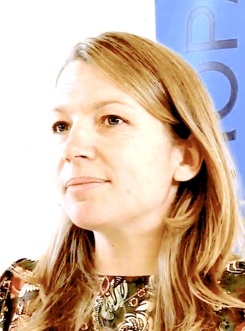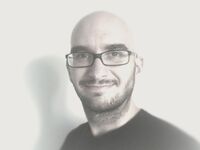Guest Lecture: Alessandra Manzini

Science, Innovation, and Political Ecology Intersection: Evaluating Mining Extraction mechanisms in Indigenous Territories of the West African Coast.
Alessandra Manzini obtained her PhD in Public Policies and Territorial Planning from the University IUAV of Venice - Italy in October 2022. She is currently a Marie Skolodowska/EUTOPIA-SIF post-doctoral researcher at CY Cergy Paris Université and hosted by the PLACES Lab.
The seminar explores the challenges of a just transition at the intersection of Science, Innovation, and Political Ecology by evaluating mining extraction mechanisms in Indigenous territories along the West African coast. The focus on Science and Innovation particularly addresses value chains of Raw Materials necessary to sustain the twin transitions (digital and energy) globally. Specifically, the lecture focuses on the application of key evaluation tools, such as Social Life Cycle Assessment (S-LCA), Hotspot Analysis along the value chains of mineral extraction, and Environmental and Social Impact Assessment (ESIA), that should precede the authorization of mining activities. These instruments aim to direct attention to the affected communities and should include the First Prior Informed Consent, empowering local people to decide on the future of their territories.
The lecture presents three empirical cases from West Africa—Sanyang-Kartong, Niafrang-Abéné, and Varela/Ninquim—where extraction activities began in agroecosystems (rise-fields-dunes-mangroves), protected marine and terrestrial zones. It examines how global policies and corporate strategies seeking essential raw materials face resistance from local activist groups. Despite the effectiveness of territorial defense mechanisms, the extractivist logic persists, disregarding both landscape protection laws and local people's consent, as well as environmental concerns. Mining in these vulnerable coastal areas, exacerbated by climate change, has profound effects on agroecological health, food sovereignty, and the vulnerability of coastal communities.
Drawing on participatory action research with local activists from Gambia, Senegal, and Guinea-Bissau—who are leading efforts to halt material extraction along the West African coastline—the lecture raises questions about the effectiveness of ESIA, LCA, S-LCA, and Hotspot Analysis as critical tools for assessing the environmental, social, and economic impacts of these activities.
- Date: March 18, 2025 from 2pm to 3pm. GMT+1
The hybrid guest lecture is organised in person at the H008 Meeting Room of MIR in Neuville-sur-Oise and remotely on Zoom.
To attend to the Guest Lecture, please connect to zoom: https://cyu-fr.zoom.us/j/98010999141?pwd=MzXyFbdzArKElDBRfCGof7hcLSin1U.1
- The video will be published on CYAS YouTube channel

